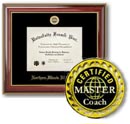|
Leadership
Coaching - in Cross Cultural Skills
Global
business has moved beyond its restricted 20th century meaning of
geographically dispersed products, services, technology, marketing,
and bricks-and-mortar offices. International Companies
today understand that to succeed they require highly skilled
global leaders, and this in turn, requires a robust Global
Leadership Development Program. Global leaders face many
challenges including; how to deal with the broader social, cultural,
ethical, political and business representation.
Today, many
international organizations are now paying careful attention as to how
they can get the right global leadership development programs and
procedures in place to assure that the right investments are being
made in the right people to ensure maximum return on investment.
Behavioral
Change is the key to success
Most
organizations offer some form of internal, generic leadership
development program for their global leaders. However, the
intricacies and dynamics of being a successful Global Leader in
today's international landscape requires a skill set which
encompasses critical core behavioral competencies that differ
considerably from those of domestic leaders. Understanding the
"why" behind the behavior of one's international customer
or colleague can also have a direct impact on successful
communications, relationship building, and increased market share.
Cross Cultural Skills Coaching
-Intercultural
Competence
What
is meant by "intercultural competence"?
Understanding people, even in one's own culture or ethnic group, is
a challenge. One of the primary reasons to study
interrelationships between psychology and culture is to obtain the
proven and vaild processes and methodologies that assist people to
become more effective in dealing with others from different
backgrounds and belief systems. A goal of cross-cultural psychology
and cultural psychology is to help produce more culturally-competent
individuals. A
culturally competent leader appreciates and understands
the differences between people.
While there are many
more resources available to the individual who desires to be more
culturally aware, there are few sources available to obtain the behavioral-based models,
tools and techniques that only a specialist psychologist in
global leadership development can teach.
Competencies are the knowledge,
personal and technical skills required for superior
performance.
Global competencies
are the specific skills and knowledge requirements required for
successful relations with people from one or more different
cultures.
Global competency development goal is to locate, assess and develop the skills and knowledge
required for outstanding global performance.
A global competency model is a validated, proven behavioral-based change and learning model that
can generate sustainable, measurable skills and knowledge.
Some
Objectives of a
Global Leadership Development Program
can include -the need to:
-
Improve and enhance an individual's global
managerial and leadership skills
-
Encourage and sustain higher performance in a
multinational environment
-
Contribute to long-term development of a global
organization
The
Unsupported Global Leader
Subject
to their own psychological defenses, aided and abetted by the
general organizational tendency to cleanse feedback or just not
provide it, most global leaders become closed loop systems. Cut off
from feedback, they are unable to accurately gauge their decisions
and impact. Therefore, over time, they can lose touch with their
impact and become less effective. Typically, without valid data by
which to correct their behavior, leaders fall back on historically
correct responses, which may not be the right cultural response to
the task at hand.
Assisting
the leader to become more skilful, requires new learning
(either new behavior, new thinking, new values, or new motivation)
which is the task of the global leadership coach. A
premium is now being placed on a wholly different leadership skill
set. Today, the leader's ability to:-
influence, persuade, sell one's ideas and manage
across cultural boundaries is the key for organizational success.
The
fact is that behavior (actions) and the other parts--feelings,
skills, thoughts, and unconscious drives--are so intermixed that it
is often over-simplified to talk about one part in isolation. Leadership
coaches need to be trained how to understand human
behavior when considering many factors: environment, perception
of the situation, consequences of the behavior, learning from
previous experience, emotions, needs and level of motivation, values
and life goals, plans and intentions, expectations, self-deception,
unconscious processes, and many more variables
|

